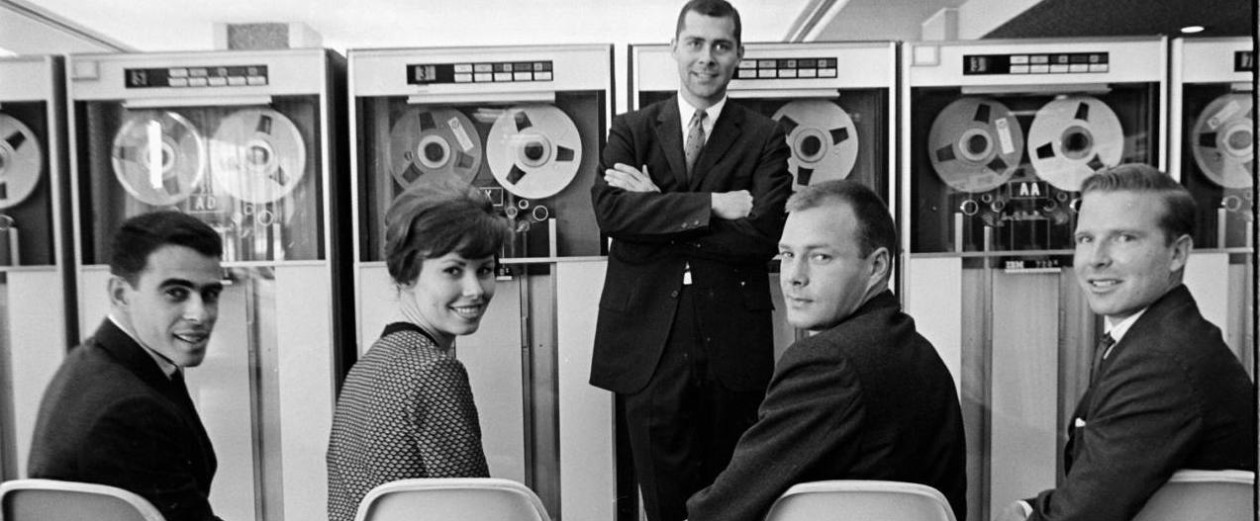This clip of Grace Hopper’s 1986 appearance on the David Letterman show has been making the rounds of the Internet. She talks about working on the Harvard Mark I, and Letterman refers to her as the “Queen of Software.” At this point, Hopper was 80 years old. As always, a remarkable presence…
Programmers on Screen
There are a number of decent documentaries on various aspects of the history of the computer, but not many on computer programmers. Among other things, programming as an activity is difficult to represent in ways that are visually interesting.
Nevertheless, I came across a work in progress on the origins of APL that looks intriguing. The producer/director Catherine Lathwell is the daughter of Richard Lathwell, one of the original APL developers. There is also Top Secret Rosies, which I was involved with, as well as To Dream Tomorrow, an excellent film about Ada Lovelace. There are also a host of related films that are not histories of programming per se, but which are nevertheless relevant.
The world still awaits its great film about the programmer heroes of the computer revolution, however!
What’s in a name?
In the recent issue of the IEEE Spectrum, Ada Brunstein has an interesting piece on the significance of job titles in which she uses Google Ngram Viewer to explore changing trends in the language used to describe computer programmers. She references my research from The Computer Boys and talks about some of the now-forgotten alternatives that were proposed during the 1960s, which included “flow-charts‑man, comptologist, and even turingineer. More serious options included informatician or datolotist.”1 Ada Brunstein, “Engineers: What’s in a Name?”, IEEE Spectrum (February 2012)
My own particular favorite was “applied epistemologist.”
- 1Ada Brunstein, “Engineers: What’s in a Name?”, IEEE Spectrum (February 2012)
The Computer Boys on Kindle!
The Kindle Edition of The Computer Boys Take Over is now available from Amazon!
The History of Science take on The Computer Boys
Another review, this time from the history of science journal Isis:
Histories of computing have often focused on the history of the computer and even then, more often than not, on the hardware rather than the software. Nathan Ensmenger’s book, in contrast, is a welcome investigation of the social history of the programmer, would-be professionals who were located at an important intersection: they built the tools (the software, the programming languages, the documentation) and at the same time had to carve out a place in often resentful organizations…
Ensmenger has provided our best account of this phenomenon so far.

 Follow
Follow